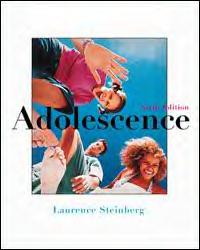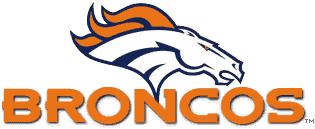
EDF 3135
The Adolescent
This general survey course is designed to introduce
students to the major areas of
adolescent development including the biological, psychological,
social and emotional
changes that occur during this period. Although
the focus of the course will center on
education, students from other disciplines are encouraged
to attend and will be given
opportunities to apply concepts of adolescent development
to their own fields.
Derek
L. Piper M.A
.
Summer B 2004: Period 4
Office Hours: TWR Period 5 or easily by appointment
Office: 348 Norman Hall (392-0726 ext. 280)
E-mail: dlpiper@ufl.edu
Contents
of this site:
Course
Outline
Course
Requirements
(Assignments, point distributions, ect.)
About the
Text
Study Aides
Course Readings
Suggested
Resources
Breaking
News and Notices: Odds, ends,
and exam overviews.
About
the Text:

Adolescence, 6e. by Laurence Steinberg has been thoroughly updated
to reflect current findings in the field of adolescent development. In
this edition, the author continues to utilize the effective combination
of a friendly writing style, thorough research and a contextual approach
that emphasizes adolescence in contemporary society. The careful organization
ensures maximum teaching flexibility that allows the chapters to work together
or stand alone. Ethnicity and Minority issues are thoroughly discussed
in a way that enables students to see how the adolescent experience is
shaped by class and culture. The strong pedagogical framework helps students
organize and integrate material. Adolescence, 6e is based on solid research
and theory, yet it has a distinctively real world feel that emphasizes
the reality of being an adolescent in society.
Click on the book to view his web site!
Study
Aides
-
Dr.
Steinberg provides a quick quiz for each chapter (click
here). Once
there, you can choose your chapter by using the 'pull-down' menu
bar labeled 'Chapter'. In general, if you can do these with
ease you will have no problem with the exam as theyoften address more specific
issues.
*** Please remember
that e-mailing me the results of these is not a requirement.***
-
The most important thing is to relax, concentrate,
and....
a href="http://www.wunderground.com/US/FL/Gainesville.html">

.......don't even think about what you could
be doing outside!
Top
Course
Readings:
(The
questions are for discussion purposes only unless otherwise noted!)
Reading #1
Reading
#1 PAGES 4 THROUGH 11 ONLY!!!!!!!! Dr. Simpson. "Raising Teens: A Synthesis of Research and a Foundation for Action." Harvard School of Public Health, 2001
***This is an Adobe Acrobat pdf file. Pages 4 through 11 may
translate into pages 7 to 14 of the print menu. In other words we
need the 'Report Summary' only. For the benefit of all of us,
please bring a copy to class!
You will not be held accountable for this entire document
but be sure to read it over before class! It is quite frustrating
to work with students who have not prepared. We will bounce this
off of our text. We are not only interested in the 'What to do' but
also the 'Why we are doing it'.
1.) What aspects of authoritative
parenting are present here? Which of these 'strategies' seem to be the least intuitive?
2.) This document sounds great, but
what if my child is a 'wild child'?
You do not need to read all four articles
(unless you would like to do so) but you need to read the article that
corresponds to your last name. Please bring a copy to class.
Last Name beginning with A through G:
Reading
#2a Dr. Blum et al. "The Children or Lost
Parents of Rockdale County" Frontline, PBS, October 1999
Last Name beginning with H through N:
Reading
#2b Dr. Tolman “Asking Some Unasked
Questions” Frontline, PBS, October 1999
Last Name beginning with O through S:
Reading
#2c Dr.Gallagher "Teenagers in Trouble"
Frontline, PBS, October 1999
Last Name beginning with T through Z:
Reading
#2d Dr.Resnick "Adrift in America" Frontline,
PBS, October 1999
1.) What approach does the author take in responding
to the documentary? In other words, what is their main theme?
Are they careful or forceful in their opinion? Do you think they
make a strong arguement? Drawing from our class and your own experience,
what could make their argument stronger? What might undermine their
arguement?
2.) Did the producers of this documentary go too far in any
one area? Should they have went deeper into others? In other
words, what are the best and worst parts of this documentary?
Click
Here for a transcript of the documentary.
Reading #3: ERIC
Digests.
(Updated June 9th, 2004)
The questions following each reading will be addressed in class and do not need to be responded to for credit
For more information on ERIC Digests see 'Specific
Resources'
Once again, we will assign different class members to different
articles.
If your last name ends in A through D:
Reading
#3a "Helping Middle School Students Make the Transition into
High School" (Mizelle, 1999).
If your last name ends in E through J:
Reading
#3b "The Transition to Middle School." (Schumacher, 1998)
For Readings 3a and 3b consider the following:
-
What were some of the issues that you can remember in regard
to these transitions?
-
What types of activities (or program elements) seem to be
the most thoughtful (or at least less common from your groups experiences
during these times?)
-
(optional) group comments, insights, issues in need of further
discussion, or debatable items.
If your last name ends in K through N:
Reading
#3c "Current Literature on Small Schools" (Raywid, 1999)
If your last name ends in O through R:
Reading
#3d "Schools within Schools" (McAndrews, 2002)
For Readings 3c and 3d consider the following:
-
What was the size of the middle and/or high schools you went
too?
-
---What were the advantages and disadvantages?
-
Briefly list the pearls and promises of small schools or
schools-within-schools as described by the authors of the digests.
-
(optional) group comments, insights, issues in need of further
discussion, or debatable items. (An interesting perspective might come
from those who went to private and/or parochial schools).
If your last name ends in S through U:
Reading
#3e "Motivation and Middle School Students" (Anderman & Midgley,
1998)
If your last name ends in V through Z:
Reading
#3f "K-12 Single-Sex Education: What Does the Research Say? (Pamela, 2000)
Misc.
Reading
#3g "Self-Directed Learning" (Abdullah, 2001)
For Readings 3e, 3f, and 3g consider the following:
-
How were the approaches suggested in the digest similar/different
from your experiences in school? Can you remember any activities/assignments
that seemed to 'fit' into what the author suggests? Are the authors leaving something out??
-
What are some of the more promising practices suggested by
the author (or at least those that are less intuitive)?
-
(optional) group comments, insights, issues in need of further
discussion, or debatable items.
Top
Suggested
Resources:
General:
 Home of the World Champion Denver Br...err...former (and once mighty) Denver
Broncos!
Home of the World Champion Denver Br...err...former (and once mighty) Denver
Broncos!
* I have no idea how this link got here -- it is unfortunately beyond
my control.
 Education Week is a good resource for current events in the field of education.
Education Week is a good resource for current events in the field of education.
 Search "Ask Eric" for professional journals and other primary resources.
Search "Ask Eric" for professional journals and other primary resources.
Student
Resources recommended by Dr. Stienberg.
 If you are ever interested in my background (LOL....No B.G, you are not
being indoctrinated!)
If you are ever interested in my background (LOL....No B.G, you are not
being indoctrinated!)
More
Specific Resources:
 A site by the Kaiser
Foundation about how parents can address tough issues.
A site by the Kaiser
Foundation about how parents can address tough issues.
Talkingwithkids.org
ADOL
Adolescence Directory On-Line
- An electronic guide to
information on adolescent issues from violence to mental health.
Society for Research in Adolescence
- A comprehensive site primarily
interested in peer interactions.
- Contains a number of quality
adolescent links such as psychweb, Indiana University, and Facts for Families.
ERIC
Digests We use this resource for Reading #3. ERIC
Digests are:
-
short reports (1,000 - 1,500 words) on topics of prime current interest
in education.
-
targeted specifically for teachers, administrators, policymakers, and other
practitioners, but generally useful to the broad educational community.
-
designed to provide an overview of information on a given topic, plus references
to items providing more detailed information.
-
produced by the 16 subject-specialized ERIC Clearinghouses, and reviewed
by experts and content specialists in the field.
Youth
info was developed by the U.S. Department of Health and Human
Services (HHS)
-
This site is chalk full of information and has other links regarding adolescents
issues.
Childstats.gov
is a site that provides oodles of statistical information about children
and their families.
AboutOurKids.org
provides lots of information about kids in general.
- This site devotes a lot of space
to mental illness and parenting.
The
Office of Juvenile Justice and Delinquency Prevention
- The federal government's
take on a very serious issue. I have a hard copy of their 1999 report.
Monitoring
the Future
- An ongoing study of
American secondary school students, college students, and young adults.
- Each year (since the mid
1970s) they have surveyed over 50,000 people primarily about drug use.
Center
for Disease Control (CDC)
- A huge data base about anything
related to health. They have many reports geared toward adolescents.
The
Secret Life of the Brain: The Teenage Brain
- A special ran last
semester regarding teens and neuroscientce.
"Frontline:
Inside the Teenage Brain"
- Yet another special
ran last semester...we will be viewing this one in class.
Primarily
Education Stuff:
The United
States Department of Education
- You never really know from election
to election if they will be around or not.
Afterschool.gov
A web site set up by the DOE to provide information for teens. Any
opinions?
National
Center of Education Statistics
- Many folks don't even realize
a site like this exists.
- If you are looking for quantitative
information on schools here is your site.
Florida
Department of Education
- Florida has a pretty active and useful
education web site with info from FCAT scores to the SSS.
Job
Opportunities in Florida School Districts
- This site should give you an idea
of what is out there if you are looking into education.
Please e-mail me if you run into
a "dead" link on this page.
Top
Home

 A site by the Kaiser
Foundation about how parents can address tough issues.
A site by the Kaiser
Foundation about how parents can address tough issues.